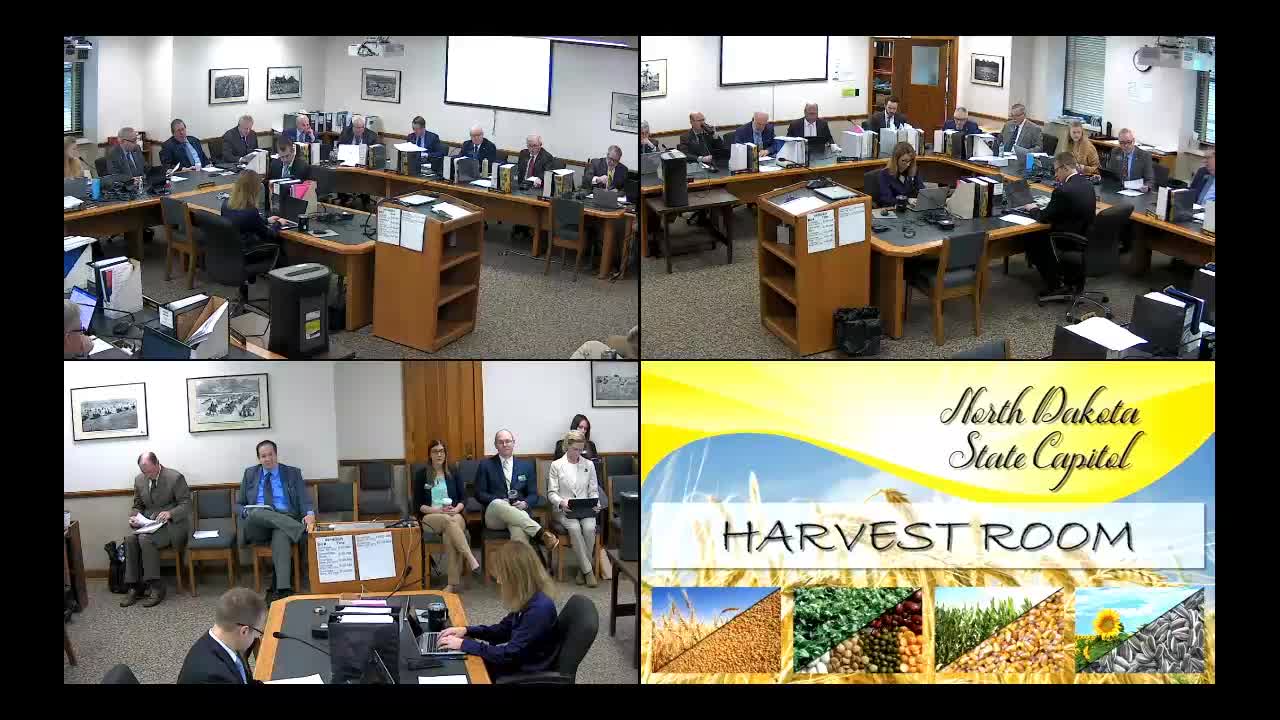Appropriations panel funds enforcement unit for pharmacy benefit managers, sends House Bill 1584 to floor
Get AI-powered insights, summaries, and transcripts
Subscribe
Summary
The Senate Appropriations Committee amended and recommended a due-pass on House Bill 15‑84, creating a Pharmacy Benefit Manager Enforcement Fund funded by existing drug pricing monies, authorizing $1.2 million in annual spending and three full‑time positions for enforcement.
The Senate Appropriations Committee on Monday approved amendments to House Bill 15‑84 that create a dedicated enforcement fund for pharmacy benefit manager oversight and authorized staff and spending to start enforcement work.
The amendment, moved by Senator Dwyer and seconded by Senator Wozniak, transfers the balance of the existing drug pricing fund (described in committee as about $1,700,000) into a newly created “pharmacy benefit manager enforcement fund,” caps annual spending authority from that fund at $1,200,000 and authorizes three full‑time equivalent positions — an attorney, a pharmacist and an investigator — to support enforcement. The amendment passed on a roll call and the committee then recommended a due pass as amended to the full Senate.
Why it matters: pharmacies and insurers told the committee enforcement authority was needed to address disputes over PBM contracts and drug pricing, while some senators warned the measure could create new bureaucracy without delivering consumer savings. The funding language limits the insurance commissioner’s spending to an amount approximating projected annual fee revenue and uses an existing one‑time balance to start staffing.
Bill details and fiscal approach Committee discussion centered on two fiscal points: moving the unused drug pricing fund balance into the new enforcement fund, and setting a cap on annual spending so the new enforcement activity does not operate from an “open checkbook.” Senator Dwyer told the committee the subcommittee limited its action to funding and FTEs and left the policy provisions — such as enforcement authorities and penalties — to earlier policy committee work.
Senator Dwyer described the staffing plan as a starting point: “We authorized 3 full time equivalent positions, an attorney, pharmacist and investigator for that purpose,” he said in committee. Committee members noted the department’s uncertainty about enforcement workload and discussed whether the appropriation might require a deficiency payment later, depending on experience.
Concerns raised Senator Davidson pressed whether new enforcement and penalties will actually enable regulators to access PBM records and crack down on market practices that pharmacies describe as restrictive. Senator Davidson said previous efforts resulted in limited disclosure from PBMs. Senator Davidson: “How do they think they're gonna be able to crack down on the practices… if we weren't ever able to do it before?” The committee pointed to the bill’s enforcement and penalty sections as the intended mechanism.
Other senators questioned whether the measure will produce consumer savings or simply add bureaucracy; one senator cited litigation in other states and warned that portions of the commercial insurance market may remain governed by self‑funded plans beyond state authority.
Votes and next steps - Amendment 02005 (creates Pharmacy Benefit Manager Enforcement Fund; caps spending; authorizes 3 FTEs): moved by Senator Dwyer; seconded by Senator Wozniak. Motion passed (committee tally recorded as a passage of the amendment). - Motion for due pass as amended on House Bill 15‑84: moved by Senator Dwyer. Committee recommended a due pass as amended (roll call recorded; committee vote reported 15‑1).
The committee recorded that Senator Dwyer will carry the committee amendment to the floor and arrange for Senator Barta to carry the bill as sponsor on the chamber floor if needed.
Ending: The bill as amended now proceeds to the Senate floor with the committee’s funding guardrails in place; committee members signaled continued scrutiny of the insurance department’s capacity to implement enforcement once the department gains operating experience.
